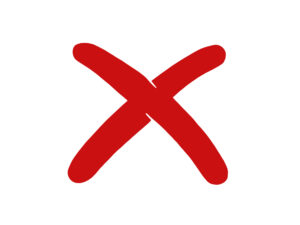Is Timberland a good boot brand for ethical consumers and shoppers?
Our independent team of researchers evaluated Timberland based on 15 different factors, including the company’s commercial activity and ethical (or unethical) business practises. Sadly, Timberland still falls short of The Good Shopping Guide‘s Ethical Benchmark and cannot be considered a good, ethical brand for customers concerned about the Environment, Animals, and People.
How was Timberland founded?
The VF Corporation owns Timberland LLC, an American outdoor footwear producer and retailer. In addition to selling clothing and accessories, the business also sells leather goods, watches, and eyeglasses. The company headquarters of Timberland are situated in Stratham, New Hampshire.
The brand was founded in 1952 and in 1973, Timberland debuted its first pair of famous Timberland boots. During the 1980s and 1990s, Timberlands were popularised by rappers and celebrities such as Tupac and Jay-Z. In 2011, Timberland was acquired by VF Corporation.
However, despite its popularity, ethical consumers will want to know… is Timberland an ethical and sustainable brand of boots?
VF Corp’s Environmental Report
By 2030, VF Corp aims to cut CO2 emissions by 30%, which includes Scope 3 (this means that subsidiary brands, such as Timberland, are part of this goal-setting). The corporation also states that it wants to make all of its activities 100% renewable, as stated in a VF Corp Sustainability Report. A top rating is given to VF Corp for this Environmental Report because both objectives apply to Timberland and this brand is frequently discussed in the report. The detail of this Environmental Report has resulted in a good rating in this research category.
Is Timberland Cruelty-Free?
Whilst Timberland does use leather and so is not a Vegan or Cruelty-Free brand, it does have a robust Animal Welfare Policy, including information on mulesing (Timberland does not use wool from mulesed sheep).
What is mulesing? (Content warning)
Mulesing is a technique used by some sheep farmers as a means of preventing flystrike, a painful and lethal condition in which fly larvae burrow into a sheep’s woolly folds of skin and eat the flesh of the animal. These wrinkled folds are removed by cutting and stretching the skin (mulesing), however it can be painful for sheep. It would be preferable to either avoid using wool or other animal products altogether, or to breed sheep that do not have wrinkled creases in their skin, which makes them less prone to flystrike. Merino sheep are frequently mulesed because they are particularly susceptible to flystrike.
The wool industry and sheep producers are being pushed by the RSPCA to create breeds that are flystrike-resistant.
Timberland, VF Corp and Human Rights
Over 1 million Uyghurs and other Muslim minority ethnic groups in the far-western region have been rounded up, imprisoned, and forcedly indoctrinated as part of a new imprisonment campaign launched by China’s Communist Party at the beginning of 2017. A coalition of more than 180 human rights organisations is urging fashion merchants and clothing companies to quit supporting the Chinese government’s abuse of human rights by using forced labour in the Uyghur Region. Timberland is one of the companies being criticised by coalition members for not doing enough to recognise and end business ties with forced labour associated with the Uyghur Region.
Another Human Rights criticism of VF Corp comes from Stop Child Labour and SOMO.
Only one-third of what is regarded as a living wage is paid to the average garment worker in Bangladesh. Parents’ decisions to pull their children out of school and let them work in different jobs have been found to be significantly influenced by low pay and excessive work hours. This problem is exacerbated by the presence of numerous foreign clothing companies, including but not limited to H&M, C&A, Esprit, Marks & Spencer, GAP, VF Corporation, and Kmart Australia.
These are significant results from the Branded Childhood report, which Stop Child Labor and SOMO just released.
How could Timberland improve its Ethical Score and gain Ethical Accreditation?
Despite a good Environmental Report and Animal Welfare Policy, there are still many areas where Timberland could improve its Ethical Score, namely by addressing Human Rights and labour abuses in its supply chain. Timberland needs to examine the factories and consider the people who are making its boots, and put their needs and rights above profit.
If your shoes and trainers brand values ethics and sustainability, why not check out The Good Shopping Guide‘s Ethical Accreditation? Increase customer and investor confidence and stand out from the greenwash.
Ethical performance in category
GSG score
GSG category benchmark
Ethical Rating
Environment
-
Environmental Report
Good
-
Nuclear Power
Good
-
Sustainable Materials
Good
-
Fossil Fuels
Good
Animal
-
Animal Welfare
Good
-
Vegan Options
Poor
People
-
Armaments
Good
-
Code of Conduct
Good
-
Political Donations
Poor
-
Ethical Trading Schemes
Poor
-
Human Rights
Poor
-
Human Rights+
Poor
Other
-
Ethical Accreditation
Poor
-
Other Criticisms
Good
= GSG Top Rating = GSG Middle Rating = GSG Bottom Rating
